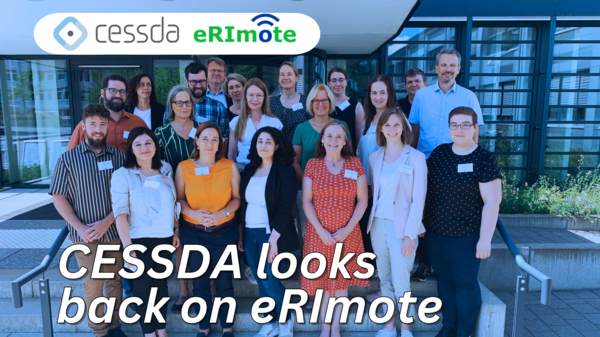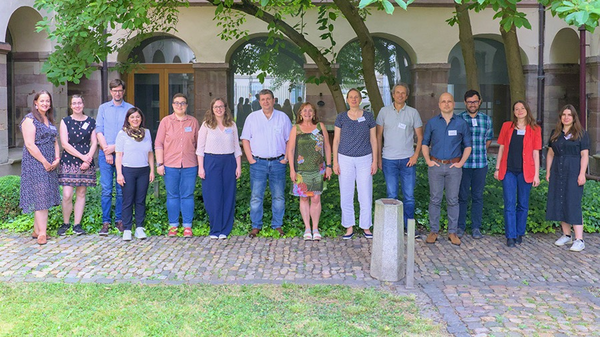
CESSDA looks back on eRImote
From June 2022 to November 2024, CESSDA participated in the eRImote project (European Research Infrastructures - Pathway to Improved Resilience through Digital and Remote Access) and contributed to improve the accessibility and resilience of Research Infrastructures.
The eRImote project was the first to consider solutions for digital and remote service provision across Research Infrastructures (RI) domains. CESSDA participated alongside the UK Data Service (UKDS) in the UK and the Swiss Centre of Expertise in the Social Sciences (FORS) in Switzerland.
Developed in response to the COVID-19 pandemic and the unprecedented speed with which the scientific community responded to provide solutions, the project brought together partners from the environmental, life, physical and social sciences, coordinated by DESY (Deutsches Elektronen Synchrotron).
Social Sciences perspective
Drawing on previous work on the topic, in particular in the context of the SSHOC project, CESSDA added a crucial perspective to the discussion on the various access types and the challenges and barriers specific to each.
"Virtual access, a common access model in the Social Sciences and Humanities RIs, but also applied in many other RI domains, shares characteristics of remote access and may face similar challenges, but often at a higher scale: the standardisation of data management plans and metadata standards across different facilities in distributed RIs, data FAIRification (i.e. making data findable, accessible, interoperable, reusable), high demands on cyber-security, and the sharing of large data volumes, which requires robust high-bandwidth connections and/or temporary data storage solutions, or in other cases the legal restrictions on data movements for sensitive data.” This is highlighted in the eRImote Green Paper.

The eRImote midterm meeting took place at the European Science Foundation in Strasbourg, 29-30 June 2023
Green Paper
CESSDA co-authored the publication "Facilitating Remote and Virtual Access Provision by European Research Infrastructures – Requirements, Issues, and Recommendations”.
As the main publication stemming from eRImote, feeding on activities carried out across the entire project, it offers a comprehensive overview of the current state of different remote and virtual access models of RIs in Europe, how they are implemented, the challenges they pose, and the benefits they offer.
Workshops and expert groups
The project team carried out extensive research through stakeholder workshops, expert group discussions, targeted surveys, interviews, and analysis of specific use cases.
UKDS co-organised with Euro-BioImaging ERIC a pivotal workshop in London on 26th April 2023, addressing governance, policy, funding, and impact implications of remote access to research infrastructure services. It was held as an in-person event and assembled 30 high-level representatives from the Research Infrastructure ecosystem, including representatives of national funders, the European Commission, the ERIC Forum, and the EOSC Association.
A presentation from Bonnie Wolff-Boenisch, Director of CESSDA ERIC, and the subsequent discussion, focused on the need for RIs to maintain good governance, especially through times that challenge their existing processes and systems, such as the shift to remote access service delivery during the pandemic.
Director Bonnie Wolff-Boenisch made an introduction on the topic of
governance in relation to remote access, and gave some insights into
challenges that CESSDA ERIC faces, despite operating predominantly
in a remote format since its inception
UKDS also led an expert group on Data sharing, Data access and security. It considered how we manage and enable timely and effective access to data, whilst upholding security and ensuring obligations to data owners are met. In three online meetings, topics for discussion spanned technical and process solutions that addressed authentication and authorisation of users and RI staff; data classification models and related modes of access; licensing and contracts; and infrastructure security measures.